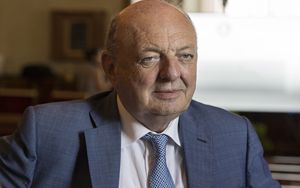(Finance) – “After decades of fear-based narration of atomic energy, finally in Italy too we are starting to discuss nuclear energy in a “secular” way.”, without preconceptions, without dogmas, without fideistic adherence to this or that position. Public opinion is understanding that the no to nuclear power, sanctioned by the two referendums in the aftermath of the Chernobyl and Fukushima accidents, has brought us no advantages or security but rather delays and environmental risks that we are dealing with today”. The Minister of Environment and Energy Security said this Gilberto Pichetto Fratin in his speech in the ENEA scientific magazine, “Energy, Environment, Innovation”, dedicated to “New nuclear power: research, technologies, scenarios and prospects”.
Among the contributions to magazinealso available online, experts and protagonists of the sector such as Marco Enrico Ricotti, Full Professor of the Polytechnic of Milan, Roberto Adinolfi, President of Ansaldo Nucleare, Ambrogio Fasoli, Director of the Swiss Plasma Center and President of EUROfusion, Francesca Ferrazza, Head of Magnetic Eni’s Fusion Initiatives, Luca Mastrantonio, Head of Enel’s Nuclear Innovation Unit, Antonio Zoccoli, President of INFN, and Piergiorgio Sonato, President of the RFX Consortium.
The interviews are dedicated to key figures in nuclear power at a national and international level: Pietro Barabaschi, who has been directing ITER, the large international project, for over a year which aims to create an experimental nuclear fusion reactor, Massimo Garribba, Deputy Director General responsible for the coordination of Euratom policies at the Directorate General for Energy of the EU Commission, Stefano Buono, scientist and entrepreneur, founder and CEO of newcleo, company that designs fourth generation SMRs – Small Modular Reactors, Davide Malacalza, President of ASG Superconductors, a leading company in the fusion sector, and Nicola Monti, CEO of Edison, who has announced that he wants to bring nuclear power back to Italy and build two SMRs by 2040.
In particular, for the director of ITER “unfortunately in Italy the industry capable of building nuclear reactors has been dismantled. Starting again, therefore, is technically complex but I’m sure that is feasible in ours as in other European countries, because we are not starting from scratch. There is no need to be discouraged: having said this, I believe that nuclear power is not only a possible but also a desirable option and I am very happy that it is being talked about”. For his part Massimo Garribba notes that “all low-carbon sources, including nuclear energy, are necessary to achieve the EU’s objective of achieving climate neutrality by 2050. The Commission will work to ensure that within the EU , and even beyond our borders, nuclear safety remains of primary importance and that the highest standards of nuclear safety, safeguards and radiation protection are applied”.
For the entrepreneur-scientist, CEO of newcleo Stefano Buono “in Europe, and even more so in Italy, we have recently experienced the consequences of a short-sighted energy policy and the issue of energy independence is now there for all to see. Naturally, in order to include nuclear power in its energy mix, each country must equip itself with some basic infrastructure, but we believe that the characteristics of the new reactors, including the lower cost and shorter installation times, can give great impetus to the nuclear renaissance” . And as regards Italy specifically, according to Buono “a country like ours which was a pioneer in the use of nuclear energy can certainly return to building and operating power plants. The interest is strong and we have no shortage of capacity.”
“Without anything remove the commitment to energy efficiency, hydrogen (promising energy carrier of the future) and development of renewable sources, the intrinsic discontinuity of the latter makes it inevitable that a credible energy mix must be made up, for a non-negligible part, of a programmable source and a series of technological solutions suitable for specific sectors – observes ENEA President Gilberto Dialuce for his part. In the short and medium term, one possibility of introducing a significant share of decarbonised and programmable energy into the energy mix, which becomes an alternative to natural gas, is advanced fission nuclear power, and in this sector the Italian industrial fabric and the research system science place themselves in a prominent position in all international projects in this area” he concludes.
